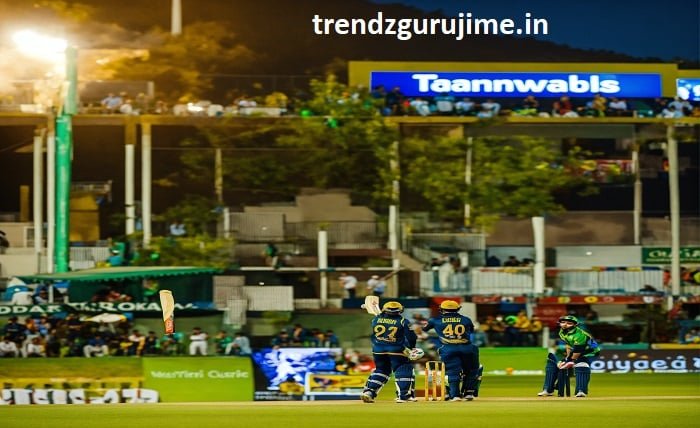The Indian Premier League (IPL) is one of the most popular and lucrative cricket tournaments in the world. However, it has also faced its share of controversies, with allegations of match-fixing and team manipulation casting a shadow over its reputation. This blog post explores the issue of fixing teams in the IPL, the impact on the sport, and potential solutions to maintain the integrity of the game.
1. Match-Fixing
Match-fixing in cricket involves manipulating the outcome of a game for financial gain. This unethical practice can take various forms, including spot-fixing, where specific events within a match are pre-determined. The issue of fixing teams in the IPL has been a recurring concern, undermining the credibility of the tournament.
2. History of Fixing in IPL
The IPL has been marred by several high-profile fixing scandals. The 2013 spot-fixing scandal, which involved players from the Rajasthan Royals and Chennai Super Kings, brought the issue to the forefront. These incidents highlighted the vulnerability of the IPL to corrupt practices and the need for stringent measures to combat fixing teams in the IPL.
3. Impact on the Sport
The allegations of fixing teams in the IPL have a detrimental impact on the sport. They erode public trust, damage the reputation of players and teams, and can lead to financial losses for stakeholders. Ensuring the integrity of the IPL is crucial for maintaining the enthusiasm and support of fans worldwide.
4. Regulatory Frameworks
To address fixing teams in the IPL, various regulatory frameworks have been implemented. The Board of Control for Cricket in India (BCCI) and the IPL governing council have established anti-corruption units to monitor and investigate suspicious activities. These units work closely with international bodies like the International Cricket Council (ICC) to ensure a unified approach to combating corruption.
5. Role of Technology
Technology plays a significant role in preventing fixing teams in the IPL. Advanced data analytics, player monitoring systems, and communication tracking help identify unusual patterns and behaviors. These technological tools are essential in detecting and deterring corrupt activities, ensuring a fair playing field for all teams.
6. Education and Awareness
Educating players, coaches, and officials about the risks and consequences of fixing teams in the IPL is vital. Regular workshops and training sessions can help instill a culture of integrity and responsibility. Awareness campaigns also play a crucial role in informing fans and stakeholders about the measures taken to protect the sport.
7. Legal Actions and Penalties
Legal actions and stringent penalties are necessary to deter fixing teams in the IPL. Offenders should face severe consequences, including bans, fines, and legal prosecution. These measures not only punish wrongdoers but also serve as a deterrent to others who might consider engaging in corrupt practices.
8. Prominent Cases and Their Outcomes
Several prominent cases of fixing teams in the IPL have led to significant repercussions. The suspension of Rajasthan Royals and Chennai Super Kings in 2015, following the 2013 spot-fixing scandal, demonstrated the seriousness with which authorities treat such offenses. These actions underline the commitment to maintaining the integrity of the IPL.
9. Fan Engagement and Trust
Maintaining fan engagement and trust is crucial in the fight against fixing teams in the IPL. Transparent communication from the IPL governing body about the steps being taken to combat corruption can help reassure fans. Engaging fans in the process and encouraging them to report suspicious activities can also strengthen the integrity of the sport.
10. Future Measures and Innovations
Looking ahead, continuous innovation and improvement of anti-corruption measures are essential to prevent fixing teams in the IPL. This includes adopting new technologies, enhancing regulatory frameworks, and fostering a culture of integrity within the sport. Ensuring the IPL remains a fair and exciting competition is crucial for its long-term success.
Conclusion
Fixing teams in the IPL is a serious issue that threatens the integrity and popularity of the tournament. By understanding the history, impact, and regulatory measures in place, we can appreciate the efforts being made to combat this problem. Continued vigilance, technological advancements, and a commitment to transparency and education are essential to ensure the IPL remains a trusted and beloved cricketing event. Together, we can help preserve the spirit of fair play and competition in the IPL.
FAQ
1. What is match-fixing in the context of the IPL?
Match-fixing in the IPL involves manipulating the outcome of a game or specific events within a match for financial gain, undermining the integrity of the sport.
2. How has the IPL addressed fixing issues?
The IPL has implemented various regulatory frameworks, including anti-corruption units, collaboration with international bodies, and advanced technologies to monitor and prevent fixing activities.
3. What role does technology play in preventing fixing in the IPL?
Technology aids in detecting and deterring fixing by using data analytics, player monitoring systems, and communication tracking to identify unusual patterns and behaviors.
4. What are the consequences for those involved in fixing in the IPL?
Offenders face severe penalties, including bans, fines, and legal prosecution, to deter future incidents and maintain the sport’s integrity.
5. How can fans help combat fixing in the IPL?
Fans can help by staying informed about anti-corruption measures, reporting suspicious activities, and supporting transparent communication from the IPL governing body.





